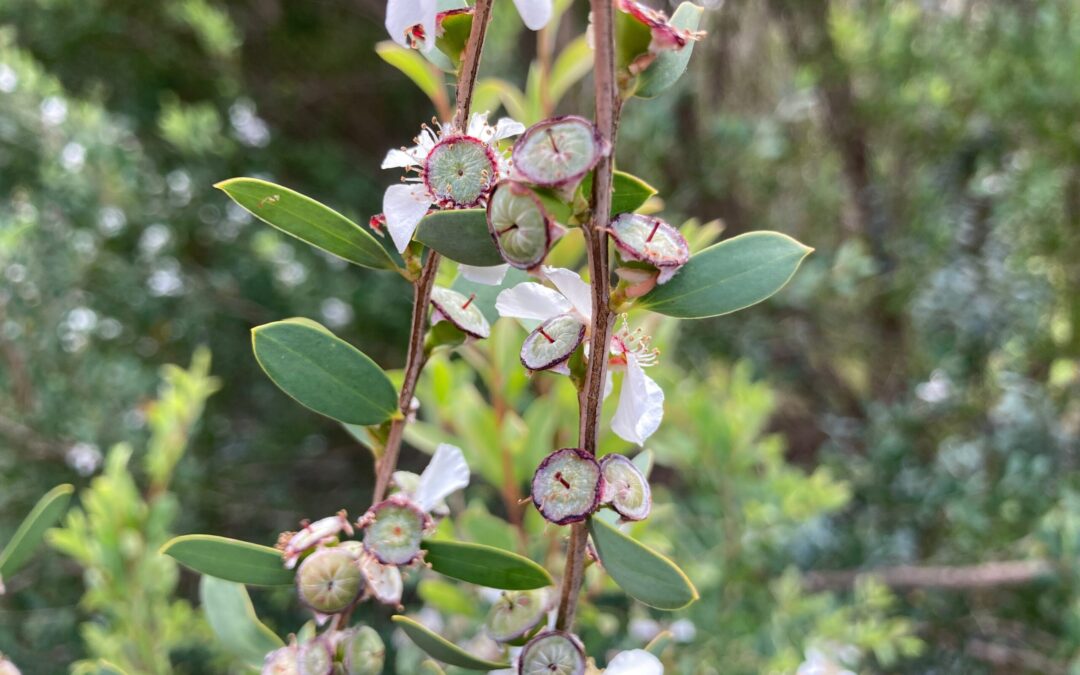Weeds are one of the biggest threats to our region’s biodiversity and Nature Conservation Margaret River Region is running three free community workshops this month to help fight the invaders.
The first workshop is Wednesday, June 5 from 10am-11.30am near the St John Sub-Centre on Donovan Street in Augusta, where locals will be trained on how to download and use Nature Conservation’s new mobile phone weed-fighting app, called Fieldbook.
“In this free community workshop, we’ll explore how to identify 13 priority weed species that can be reported on using the Fieldbook app, followed by a session on installing the app onto your personal device and collecting data in the field,” says Nature Conservation biodiversity officer Obelia Walker.
The second free community workshop is on Saturday, June 8 from 2pm-3pm at Burnside with a focus on weed trees, including how to reduce your property’s fire risk and give nature a helping hand by identifying and removing these “woody weeds”.
“In the Burnside area, woody weeds are becoming a huge fire risk. With the long summer drought, many weed trees like Sydney Golden Wattle have perished and become dry ladders to the upper canopy,” says Nature Conservation’s Woody Weeds Campaign coordinator Peta Lierich.
“Many people are using woody weed species for screening and privacy, but they’re acting as a seed source encroaching into surrounding bushland. These trees don’t provide the full habitat and biodiversity values that local native plants would.”
The third workshop is on Saturday, June 22 from 2pm-3pm at Zani Place, Margaret River, where woody weeds such as Flinders Range and Sydney Golden Wattle have also been widely used as screening and hedging plants.
At both the June 8 and June 22 workshops, Nature Conservation staff will be joined by weed guru and contractor Rick Ensley to identify some of our most invasive woody weeds, such as Sydney Golden Wattle, Flinders Range Wattle, Sweet Pittosporum, Blackwood and olives.
“The workshop will include a walk and talk with Rick followed by a practical demonstration on how to control these species on your property,” Peta says. “We will also be discussing what to plant instead for screening that is beautiful, effective, fast-growing and beneficial to biodiversity. We encourage you to bring leaf, flower and seed samples from your place if you think you might have woody weeds on your property.”
Click the links above or see our Events page for more details and to register for the free workshops.
Nature Conservation warns that woody weeds are a problem because they outcompete native species and can quickly spread to take over large areas. “We want everyone in the community to be able to ID our worst woody weeds, which in some cases can be confused with natives that belong here,” says Peta.
Woody weeds are among the weed species that can be reported using the Fieldbook app, along with other weeds such as arum lilies. The information collated by Nature Conservation via the app will be shared with community groups and government departments to help map infestations and identify priority areas – leading to better, more informed decision making and monitoring.
“We want to encourage anyone in the community to download the app and get involved, particularly if you are already out and about recreationally in our bushland and national park area,” says Obelia.
“Effective management requires a strategic approach that targets high priority areas – but this is only possible if we have up-to-date and widespread weed mapping data. As with any good citizen science project, the Fieldbook app provides locals with opportunities to learn, connect socially and experience the sense of joy and fulfilment which comes with contributing meaningful scientific data to an important cause.”
“The free app has been designed to be easy to use and accessible to all. If hands on weed control isn’t for you – the Fieldbook app is an example of another way you can get involved in actively protecting our native bushland areas. Most importantly, we hope the information obtained via the app will assist in discussions with politicians and decision makers regarding the urgent need for strategic weed control and more resourcing.”
The Woody Weeds Campaign and Fieldbook app is funded by the WA Government’s State Natural Resource Management Program.

